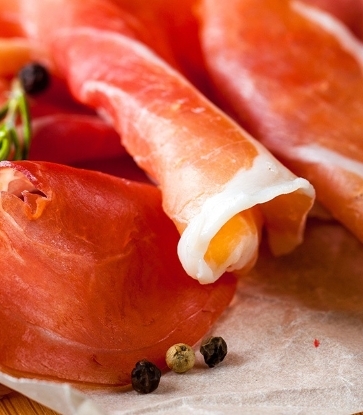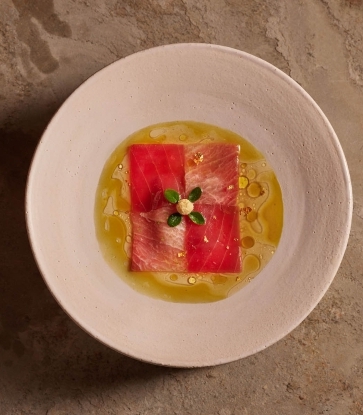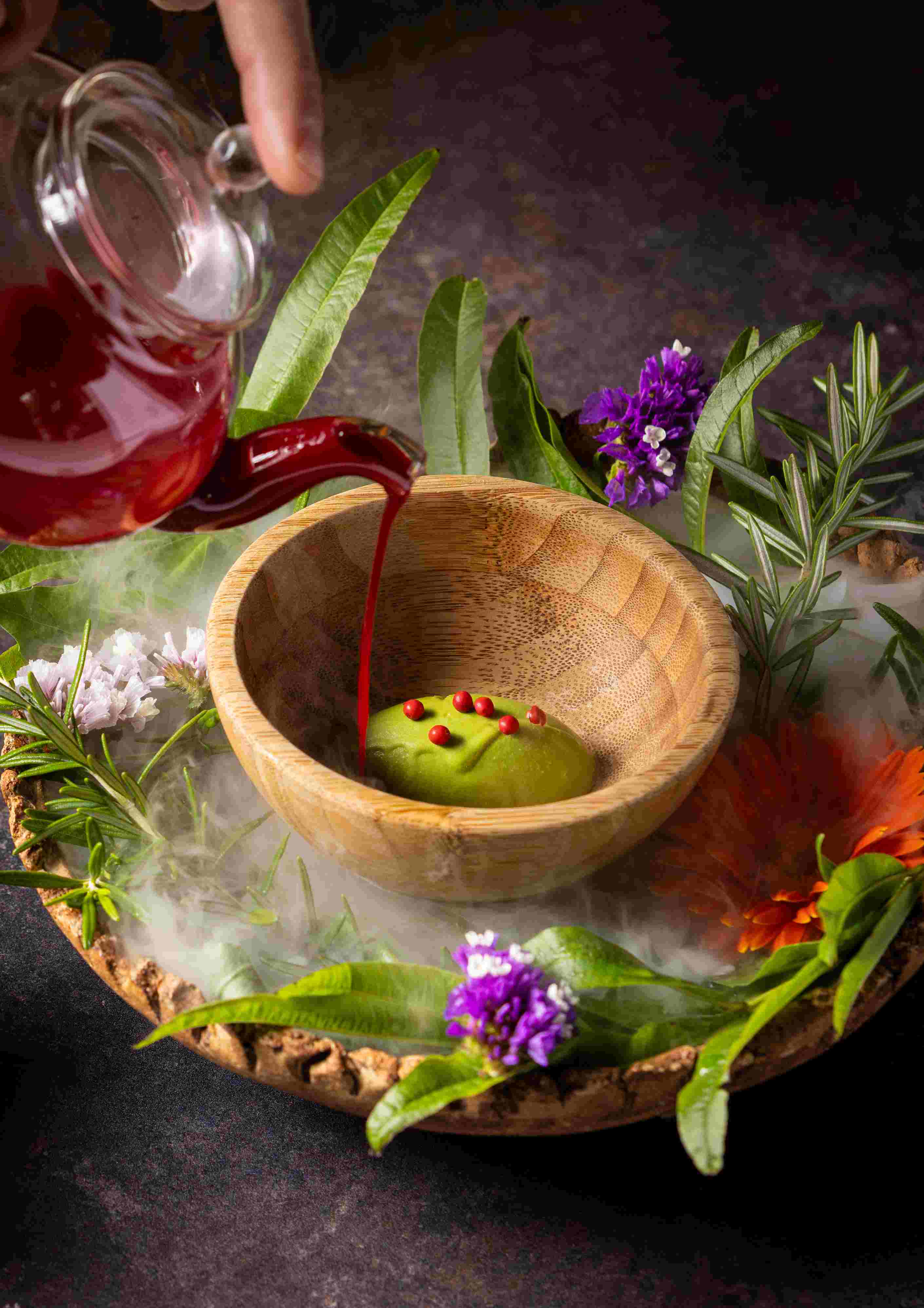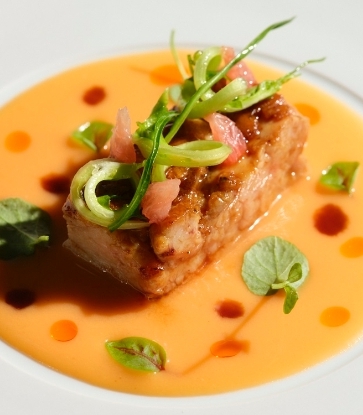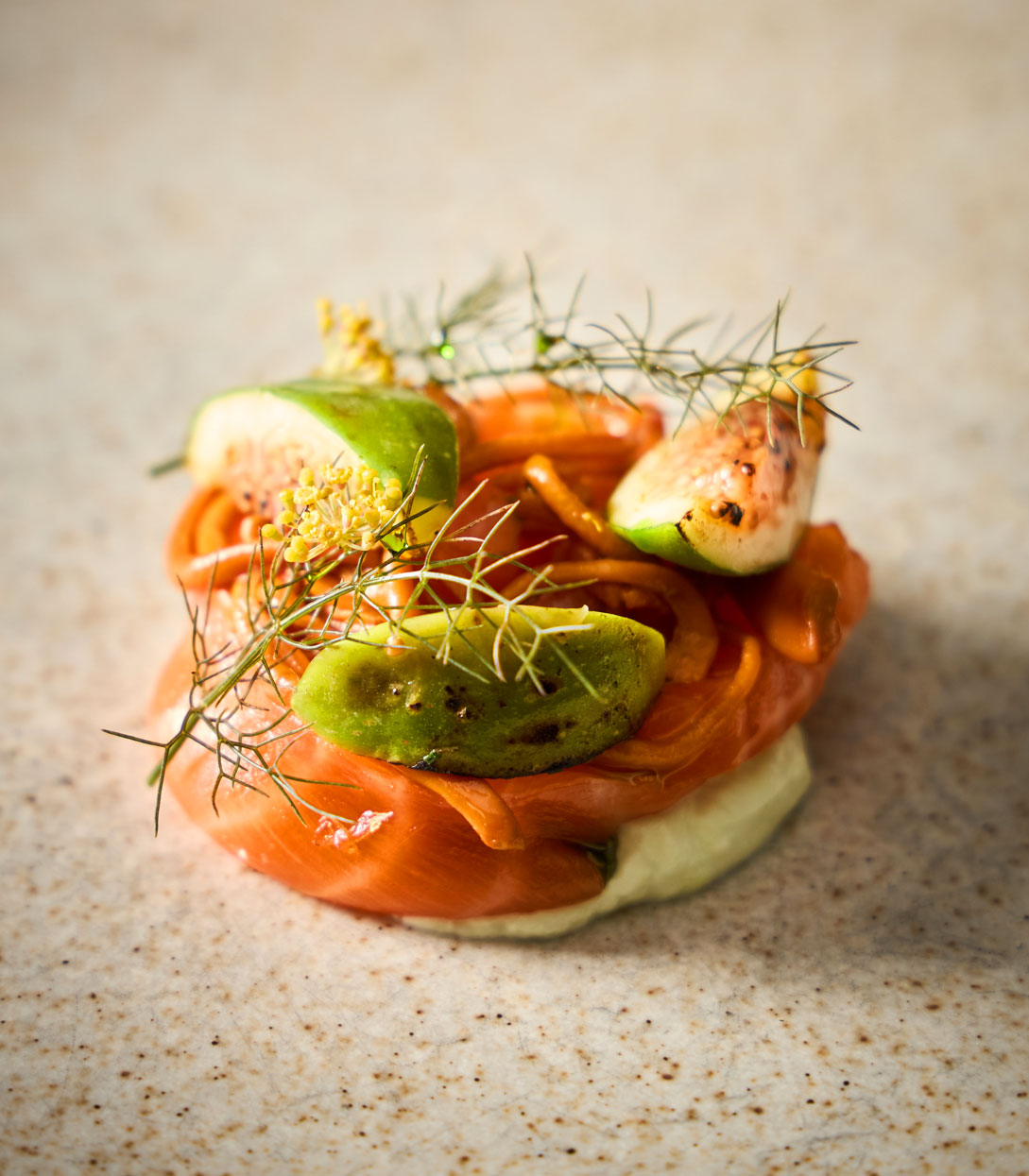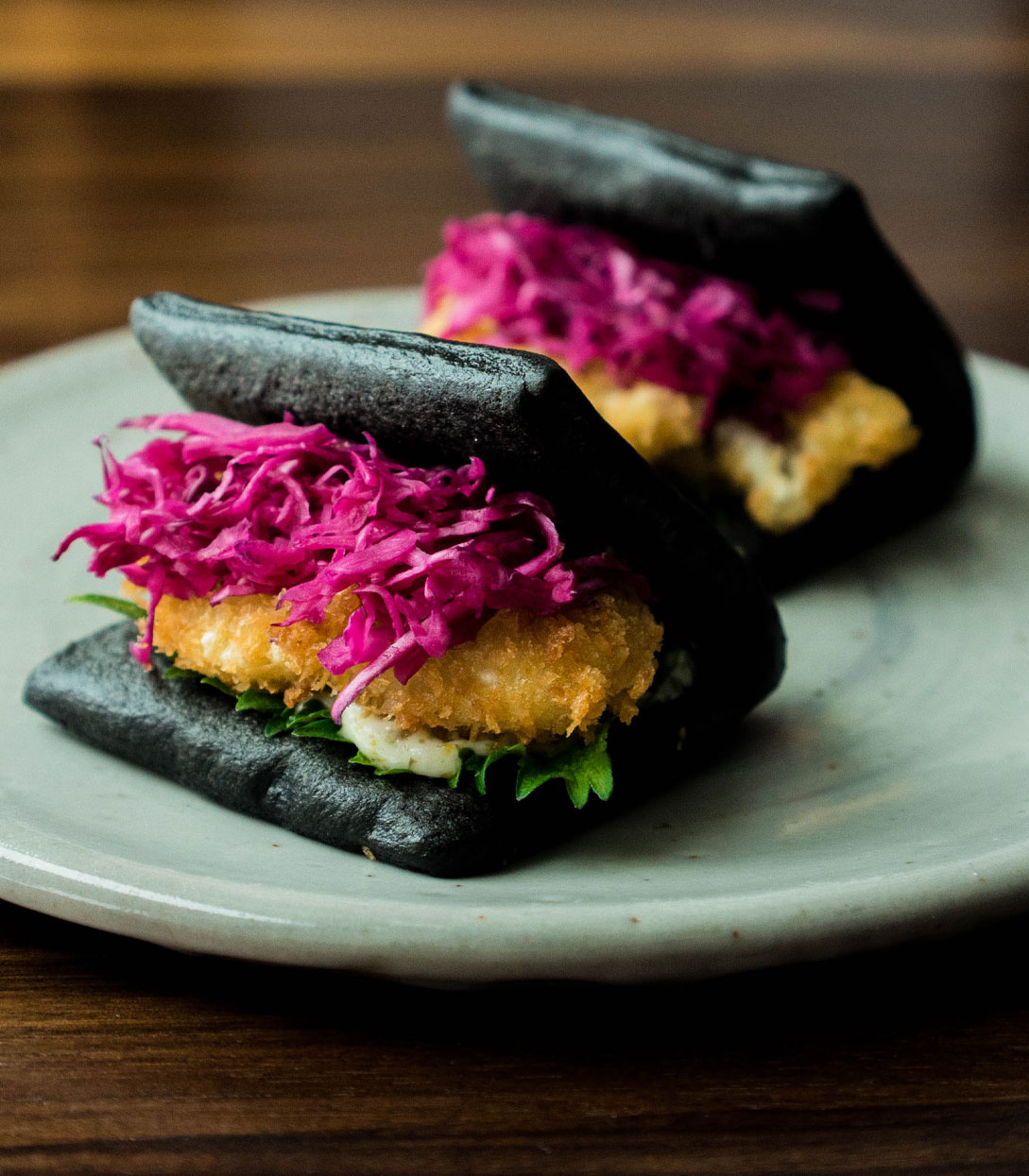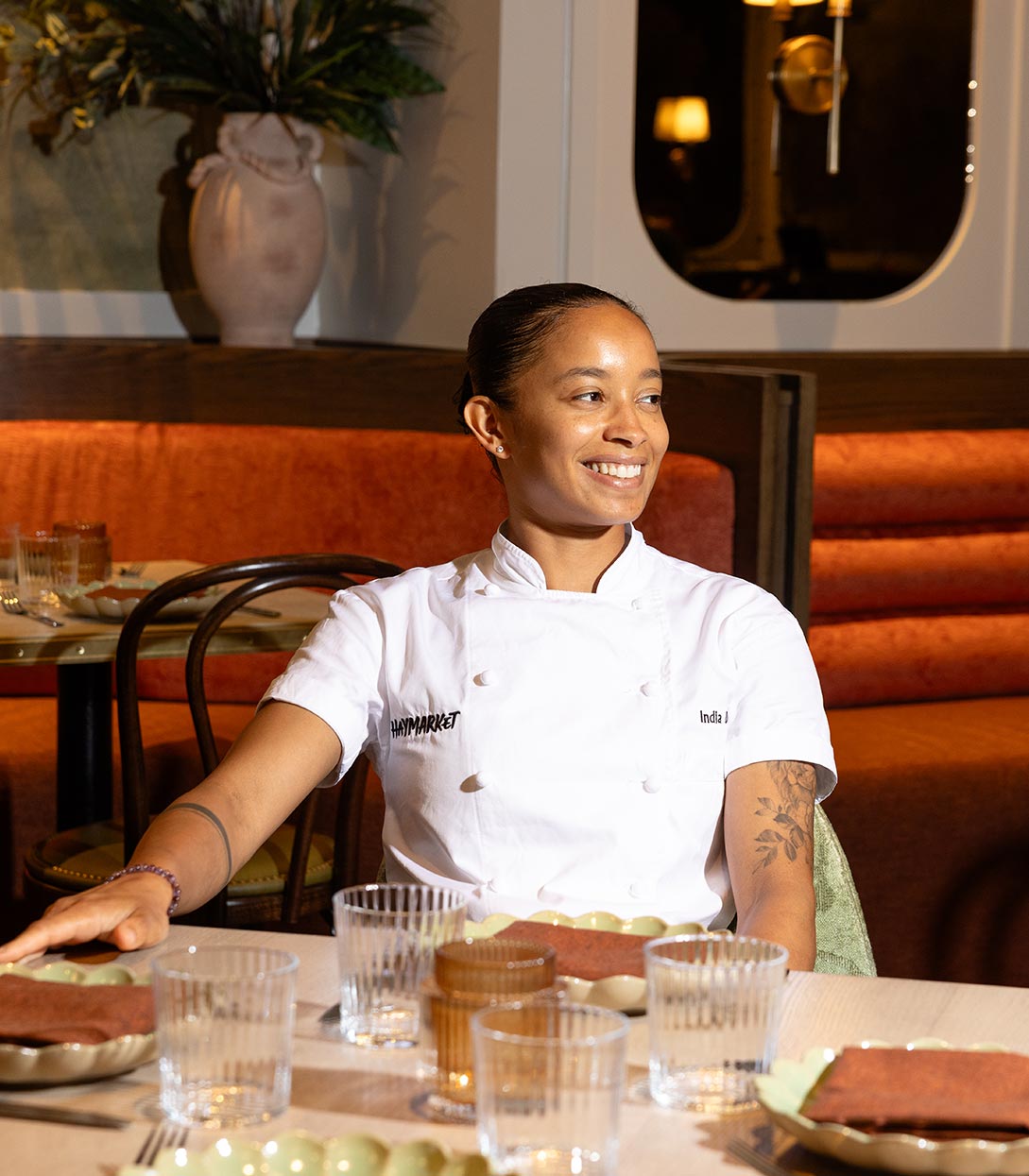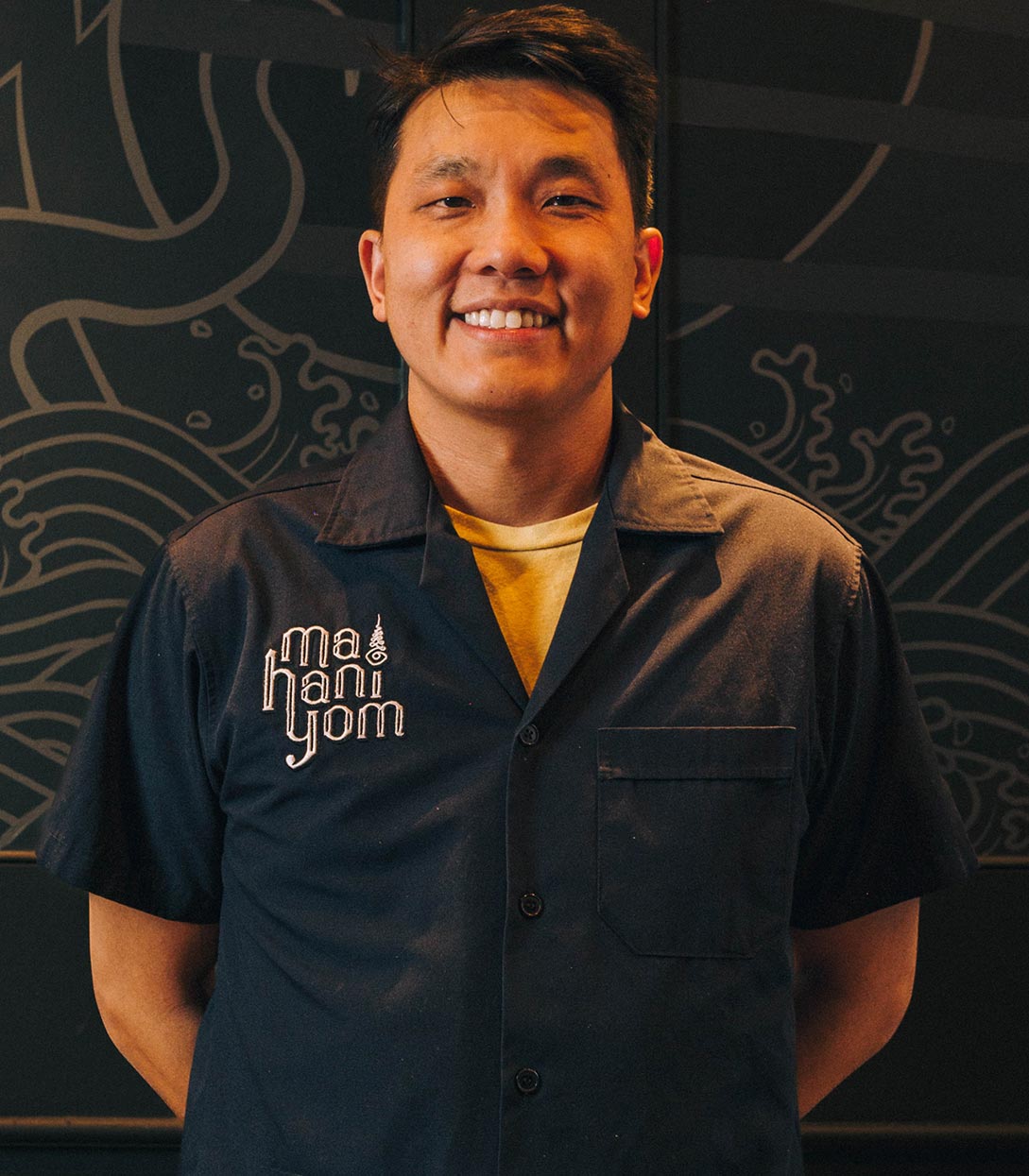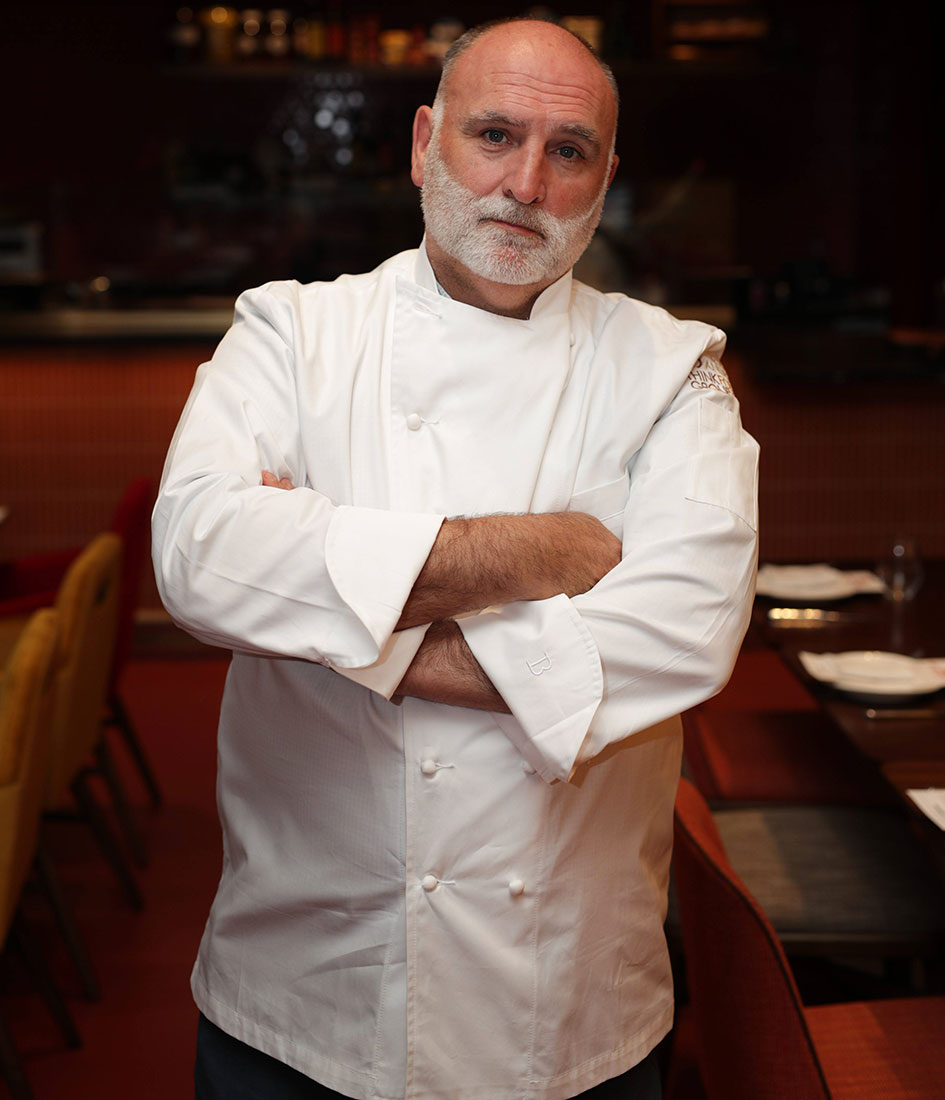The elaborate pottery at Aburi Hana in Toronto is as integral to the dining experience at the One-MICHELIN-Star restaurant as the exquisite food that comes served atop it.
Each of the pieces, with finely rendered ancient patterns and vibrant elemental pigments, was selected in-person by Executive Chef Ryusuke Nakagawa from artisans in Arita, Japan, where porcelain was first fired in the country.
“While plating and balance are, of course, extremely important, pairing the food with these traditional patterns allows guests to experience something uniquely Japanese, something that can only be found at Aburi Hana,” Nakagawa says. “It creates a deeper, more layered experience of Japanese cuisine, combining taste, culture and history in each dish.”
From plateware to pacing to ambient sounds and scents in the dining room, every detail of a guest’s evening is carefully calibrated by the team at Aburi Hana, the winner of this year’s MICHELIN Guide Toronto Service Award.
The restaurant serves a traditional kaiseki meal, a kind of Japanese fine dining, with about twelve small courses that closely reflect the seasons and represent different facets of Japanese culture.
“I trained in traditional Japanese cuisine, and many of our guests may be encountering this style of cooking for the first time,” Nakagawa says. “My hope is that they leave not only with the memory of flavors, but also with a deeper sense of Japan’s beauty—its aesthetics, its culture and its spirit.”

The team, of about six people in the kitchen and ten in the front of house, is trained to embody “the spirit of Japanese hospitality,” he adds, “understanding the thoughtfulness behind each gesture, and conveying the meaning and cultural context behind every dish.”
Over an evening, that means beginning with a bowl of soup, because dashi, Nakagawa says, is “the foundation of everything, and I want guests to taste this essence first.” Courses that follow alternate between hot and cold and light and rich, before concluding with a dessert to bring the meal “to a gentle close.”
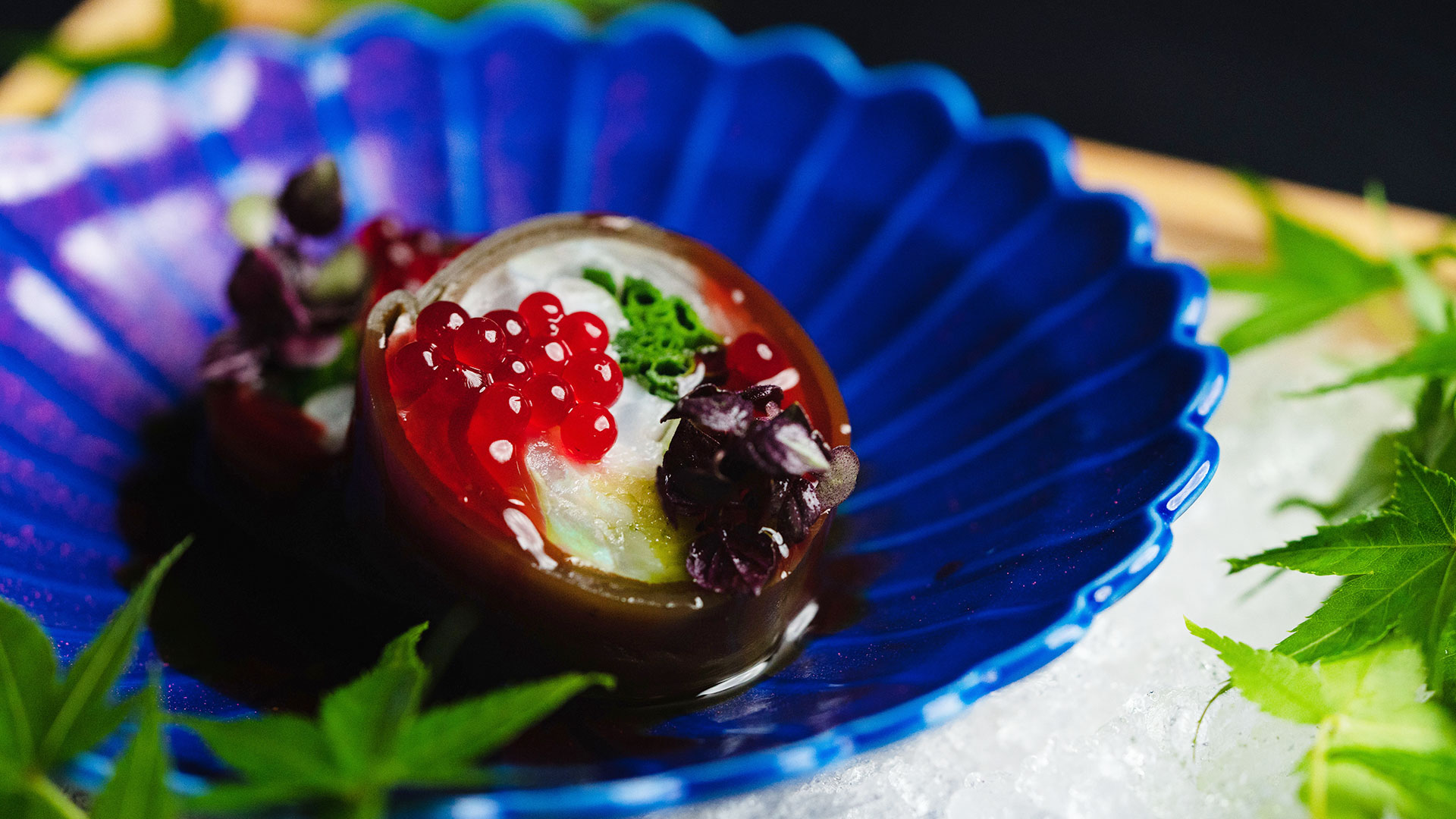
But even before the guest arrives, they are given light instructions that will ensure the meal takes place in an environment free of distractions, to allow for greater focus and subtle perceptions: phones should be set to silent; perfume and fragrant lotions should be avoided.
“Fragrance is an essential part of Japanese cuisine. The aroma of seasonal citrus like yuzu or the freshness of shiso are as important as the taste itself,” Nakagawa says. “Strong perfumes can overwhelm these delicate notes—not just for the guest wearing it, but for those around them as well.”
It’s all part of an approach to service that feels all encompassing, where every fine point makes for a fully transportive few hours.
“Our philosophy is to provide guests with an experience that goes beyond dining—one where they leave having learned something new, gained a deeper appreciation of Japan, and felt truly immersed in a meaningful cultural journey,” Nakagawa says.
Hero image: Carmen Cheung / The team at Aburi Hana





